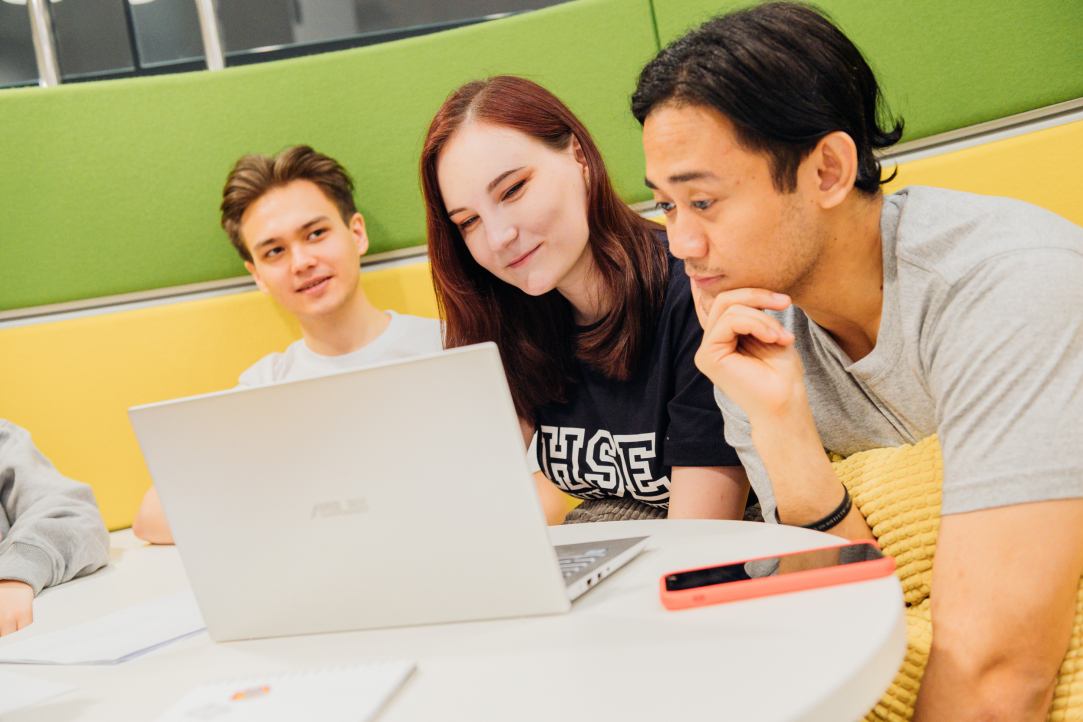
Summer University to Be Held Online Second Year in a Row
International students from all over the world can enroll in HSE University’s summer programme, choosing from a wide range of courses that will be delivered via Zoom from June 20 till August 20, 2021. This year, Summer University is offering new courses, tuition fee discounts, and networking opportunities. Application deadline is May 20, 2021.
.jpg)
'Being Fully Engaged in Your Studies Is Key for Any Student'
Sergey Korotkikh, graduate of HSE Faculty of World Economy and International Affairs, now manages consulting for CAG and teaches at HSE University. He has managed to make mentoring not only his profession but also his mission. In this interview with Success Builder, he explains how students can get the most from a university, the true meaning of ‘agile’, how to raise a new generation of managers and how goal-setting skills help in life.

‘Idea of Environmental Protection Should Become Part of Foreign Policy’
To improve its global competitiveness, Russia needs an independent environmental agenda along with a concept for environmental protection, and it makes sense to suggest a ‘global clean deal’ to Europe. A report outlining this, prepared by a team of experts from HSE University, the Ministry of Foreign Affairs and environmentalists, was presented at TASS.

Researchers Develop Microscopic Theory of Polymer Gel
Russian scientists have proposed a theory of phase transformation in polymer gels. It explains the mechanisms of the dramatic reduction in volume of zwitterionic hydrogels when they are cooled. The results are published in the journal Chemical Communications (ChemComm).

HSE April International Participants Conference to Discuss Global and National Challenges
The Human Capital Multidisciplinary Research Centre will organize a series of presentations and roundtable discussions as part of theXXII HSE April Conference, which will take place from April 13 to 30, 2021.

‘The Trip to Baikonur Blew My Mind!’
On Cosmonautics Day, the HSE News Service spoke with the participants of the CubSX-HSE project, which recently launched a satellite into Earth orbit. Students and staff from the HSE Moscow Institute of Electronics and Mathematics (MIEM) spoke about their project and impressions of their trip to Baikonur.

‘HSE Offers the Opportunity to Study Mathematics Alongside Renowned Mathematicians as Part of a Vibrant Research Community’
HSE University’s Faculty of Mathematics is one of the strongest in Russia, consistently ranking high on global university rankings. Its degree programmes attract the best students, not only from Russia, but also from around the world, by offering them a well-rounded mathematical education and a wide range of learning opportunities. In an interview with HSE News Service, a Master’s student and an HSE alum talk about features of the HSE Master’s Programme in Mathematics.

HSE and Sberbank Will Host the April International Academic Conference on Economic and Social Development
From April 13 – 30, 2021, the XXII April International Academic Conference on Economic and Social Development (AIAC) will be held in Moscow. For the first time, the conference will be co-organized by HSE University and Sberbank.

‘I Knew I Would Be Studying Alongside Only the Best’
HSE Master’s programmes are not only popular among Russian bachelor’s graduates but applicants from CIS countries as well. Adil Khaziev and Zafar Makhsudaliev discuss why pursuing a Master’s degree at HSE is a good choice for international students and what key advantages HSE University has to offer.

‘HSE Is Like Hogwarts for Me — I Couldn’t Imagine I’d End up Here Someday’
Kamola Talipova from Tashkent has been living in Russia for the past five years. She earned her Bachelor’s degree at HSE University – St. Petersburg and is now pursuing a Master’s degree at the Faculty of World Economy and International Affairs at the HSE Moscow campus. Kamola spoke with HSE News Service about St. Petersburg and Moscow, the admissions process, and studying online.

